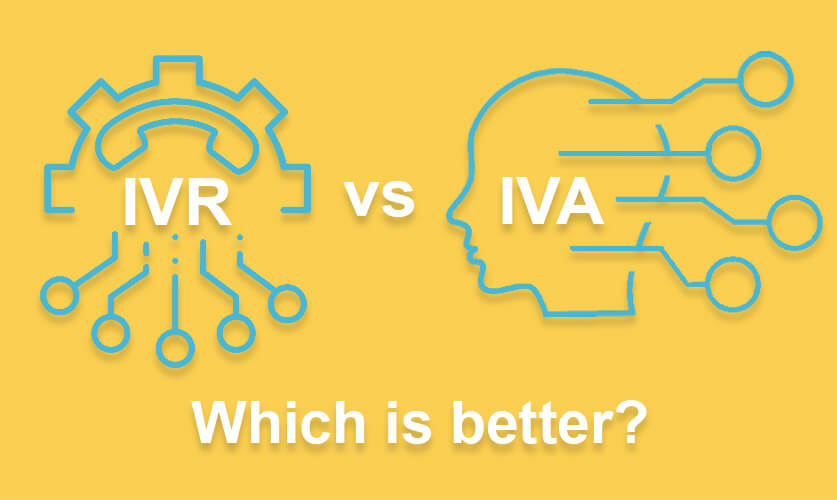IVR vs IVA: What’s the Difference?
Patient experience in healthcare is a series of touchpoints. For the majority of healthcare consumers, the phone is the first touchpoint in the journey. The caller’s first impression has the ability to make or break a business’ reputation, and ultimately, impact their bottom line.
Not all technology is created equal, and in some cases the cost outweighs the benefits for health systems. Different deployment strategies or features can make one technology solution thrive while another fails.
Today, Interactive voice response (IVR) systems are a foundational aspect of most switchboards contact centers, but tomorrow, Intelligent virtual assistants (IVAs) will likely take their place.
IVAs are the future of call management, self-service support, and staff empowerment. Let’s take a look at the differences between these technology solutions in healthcare and consider what may be a better option for your health system.
IVR
Traditional IVRs are often used in health systems to reduce call volume and prevent overwhelming operators and contact center agents with unnecessary calls.
Many institutions modernize their old-fashioned IVR with a conversational IVRs, which transforms outdated touch-tone menus into voice-driven systems with advanced speech recognition. They allow callers to speak naturally and connect instantly; no long hold times, no confusing menus, no numbers to press. However, the benefits of IVRs are limited to basic call routing. What happens to callers once they self-serve? Are they met with another IVR menu, or are they able to accomplish their objective and get their needs met? That’s where IVAs can help.
IVA
An IVA provides a more real-life interaction through a combination of conversational AI, machine learning, and advanced speech technologies (such as NLU and NLP), to conduct natural conversations with users.
With IVAs, callers are able to speak normally, no longer tied to specific key words or phrases. This not only provides a more streamlined and familiar experience for the average caller, but it saves time and money for the contact center. A great healthcare intelligent virtual assistant will be able to optimize call navigation, answer FAQs, and accomplish many appointment management tasks.
In a hospital setting, when callers with routine requests are able to speak naturally to a system that understands what they want and quickly connects them to their ideal destination, live-agent effort is saved for patients who really need it. Average call costs are lowered and highly-trained agents are able to focus on patients who need complex support. This improves FCR rates while reducing operational and labor costs for health systems.
The Benefits of IVA for Self-Service
IVA solutions for self-service allow callers to quickly and easily find the information they need and complete tasks without waiting for assistance. A person that needs live agent assistance can get it more easily when that agent isn’t burdened with routine calls. Patients want all the benefits of quicker service, but when they need a real person for empathy or complex support, they want a human agent right away.
Upgrading to an IVA allows companies to transform and enhance customer service experiences, without spending a fortune on technology.
Capable of much more than basic IVR routing, IVAs are self-service applications that offer conversational experiences and can automate more tasks than an IVR. This technology is always on, without the need for holidays, sick days or time off. IVAs are an efficient way to ensure callers always have assistance available.
That said, it is important to choose wisely. While a one-time software purchase may seem appealing, adopting the technology can take long periods of time that your IT team just doesn’t have. An enterprise directory will also degrade over time, and it is unlikely internal IT or access center teams have the time to synthesize and maintain an authoritative data directory. Up-to-date, trustworthy data is necessary in order to automate and offload more and more calls over time. Offloading management of the technology to an expert team who will take responsibility for compiling, maintaining, and tuning your directory database is a move that guarantees performance, saving your company effort and money.
By Parlance Team




